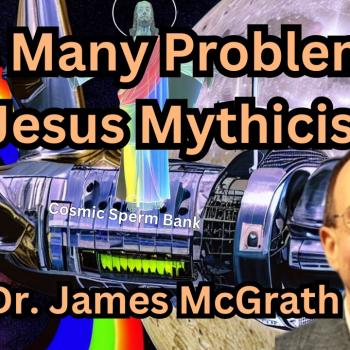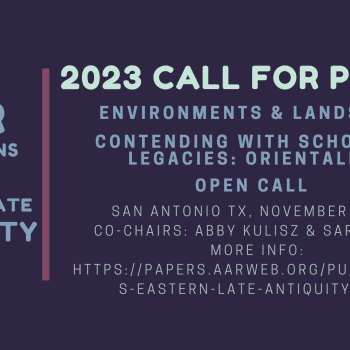First, here’s a call for papers about fantasy and the anthropocene.
CFP (edited collection): Fantasy and Myth in the Anthropocene | Brian Attebery, Tereza Dědinová and Marek Oziewicz (Eds.)
“Fantasy’s main claim to cultural importance resides, I believe, in the work of redefining the relationship between contemporary readers and mythic texts. … [If we take] myth … to designate any collective story that encapsulates a world view and authorizes belief, … fantasy offers a glimpse into the process by which mythic patterns transmit cognitive structures even without the sanction of official belief. … Fantasy’s enduring appeal is [its] capacity for mythopoiesis: the making of narratives that reshape the world.”
(Brian Attebery, Stories about Stories: Fantasy and the Remaking of Myth)“The Anthropocene is a belief that humanity has already changed the living world beyond repair … [and that] the destiny of the planet is to be completely overtaken and ruled by humanity. … Like most mistaken philosophies, the Anthropocene worldview is largely a product of well-intentioned ignorance.”
(Edward O. Wilson, Half-Earth: Our Planet’s Fight for Life)In October 2018, the UN Intergovernmental Panel on Climate Change released a special report stating that unless “unprecedented,” “rapid and far-reaching” changes are made, our planet will find itself spiraling into irreversible and catastrophic climate change. Technological and political challenges aside, the reversal of the current ecocidal trajectory requires a radical transformation of how we imagine ourselves in relation to the biosphere. One key space where this work of collective dreaming occurs is myth, fantasy and other genres of speculative fiction. Fantasy and myth have been used to explore the notions of heroism, identity, and power; raise questions about the meaning and purpose of life; express social criticism and speculate about the unseen. But what do these questions mean at a time when human activity has altered the planet in game-changing ways?
The aim of this collection is to explore the new challenges and opportunities for fantasy and myth that arose out of highly contested debates over climate change, pollution, vanishing habitats, extinctions, mass pauperization and migrations, and other effects of the Anthropocene. What does fantastic literature have to say about the human-caused changes of the Anthropocene? Do myths about a lost Eden justify the destruction of habitats and species or do they encourage us to change the way we live? What makes fantasy and myth relevant in the Anthropocene? How exactly can they function as vehicles for hopeful dreaming that steers clear of naïvete and helps us imagine alternatives to the Capitalocene’s vision of petrochemical Ragnarok? Can myth and fantasy point a way to restoring the connection with the natural rather than the supernatural? Can they articulate a vision of non-anthropocentric life, in which humans are part of rather than rulers of the biosphere?
Fantasy and Myth in the Anthropocene seeks original contributions dealing with any sort of interaction between fantastic or mythopoeic fictions and the realities of climate change, megacities, the carbon economy and the other alterations we have made to the environment. While we recognize the contribution of dystopia and science fiction to this debate, this collection aims to offer a sustained reflection upon the nexus of fantasy, myth, and the Anthropocene. We encourage contributors to draw upon a range of theoretical approaches and cultural positions: Indigenous futurism, Donna Haraway’s Chthulucene, solarpunk, energy humanities, human-animal studies, posthumanism, ecocriticism, evocriticism, and whatever else offers insight into the present age and the stories we tell about it. We welcome proposals that examine graphic novels, picturebooks, short stories, novels, films, narrative games and apps, and other mixed-media formats. We are particularly interested in contributions that engage with works for the young audiences, Indigenous futures, minority and postcolonial fantasy, recent and under-discussed works, including international and global narratives, and works originally published in languages other than English—as well as how these diverse works stimulate conversations about the Anthropocene with young people. We seek chapters on how exactly myth and fantasy accept, ignore, or interrogate the Anthropocene’s key issues and assumptions. Whose visions of change do they articulate or exclude? Ultimately, can fantasy and myth help us rethink what it means to be human at the time Amitav Gosh has dubbed “The Great Derangement”?
This collection is intended for publication with a major academic publisher in the US or Europe.
Deadlines
• Submission deadline for abstracts (max 350 words, incl. title and 5 keywords), accompanied by the author’s CV: August 31, 2019
• Authors notified of preliminary acceptance: September 30, 2019
• Publisher identified and preliminary contract finalized: fall 2019
• Submission deadline for chapters (about 5000 to 6000 words, max. word length and documentation style pending publisher’s requirements): June 15, 2020
• Peer review completed. Revision suggestions sent to authors: September 30, 2020
• Revised chapter drafts submitted for final editorial review: November 15, 2020
• Final manuscript submitted for copy-editing by the publisher: early spring 2021If you have any questions, please contact the co-editors at [email protected]
Also relevant, although veering into science fiction, was a recent IO9 piece suggesting that Star Trek really ought to tackle the issue of climate change. See too this call for papers about climate fiction or “cli-fi”:













